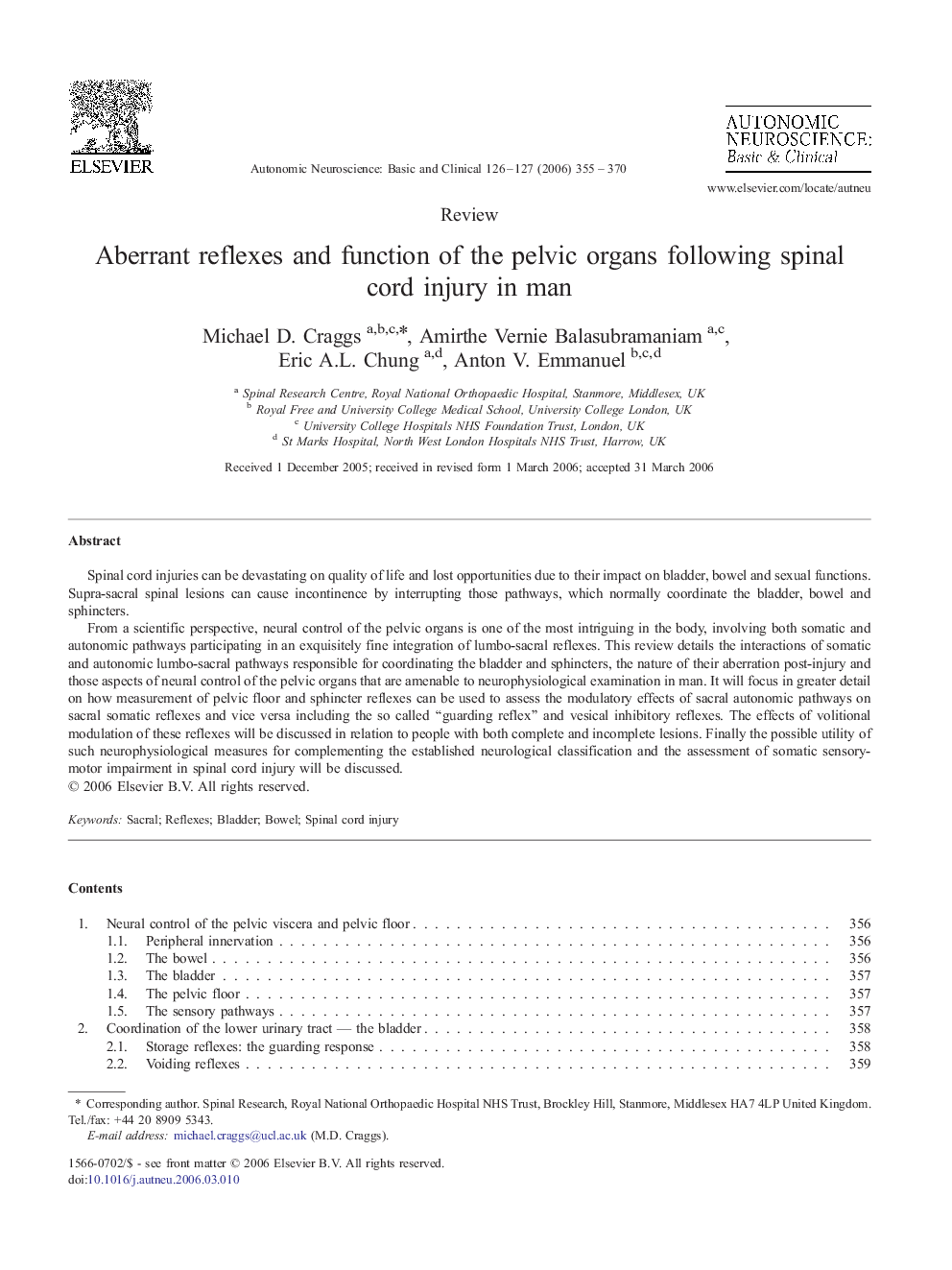| Article ID | Journal | Published Year | Pages | File Type |
|---|---|---|---|---|
| 3035874 | Autonomic Neuroscience | 2006 | 16 Pages |
Spinal cord injuries can be devastating on quality of life and lost opportunities due to their impact on bladder, bowel and sexual functions. Supra-sacral spinal lesions can cause incontinence by interrupting those pathways, which normally coordinate the bladder, bowel and sphincters.From a scientific perspective, neural control of the pelvic organs is one of the most intriguing in the body, involving both somatic and autonomic pathways participating in an exquisitely fine integration of lumbo-sacral reflexes. This review details the interactions of somatic and autonomic lumbo-sacral pathways responsible for coordinating the bladder and sphincters, the nature of their aberration post-injury and those aspects of neural control of the pelvic organs that are amenable to neurophysiological examination in man. It will focus in greater detail on how measurement of pelvic floor and sphincter reflexes can be used to assess the modulatory effects of sacral autonomic pathways on sacral somatic reflexes and vice versa including the so called “guarding reflex” and vesical inhibitory reflexes. The effects of volitional modulation of these reflexes will be discussed in relation to people with both complete and incomplete lesions. Finally the possible utility of such neurophysiological measures for complementing the established neurological classification and the assessment of somatic sensory-motor impairment in spinal cord injury will be discussed.
